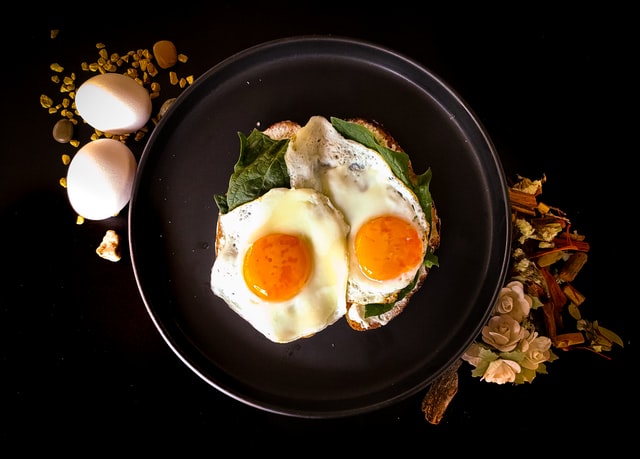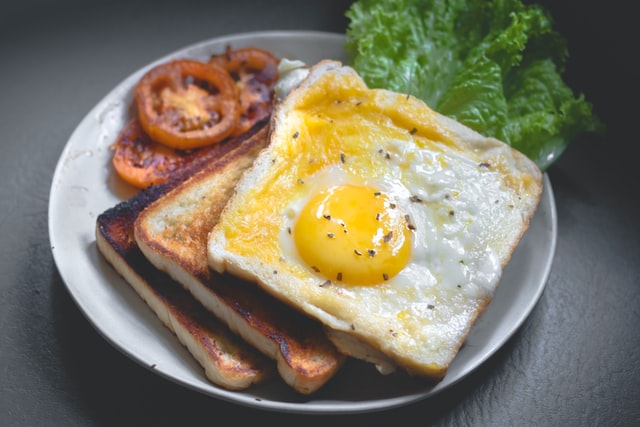‘The most important meal of the day’ is a phrase that’s rang through many of our ears but how many of us actually eat breakfast in the morning and what are our reasons for not doing so?
For those that do, it can take many forms like a slice of toast or a full blown fry up. It also depends where you are too.
The word “breakfast” came into use in the English language to mean ‘breaking the fast’, the fast being the period of time where you’d sleep and not be eating. This happened in the 15th century but the tradition of eating a morning meal has existed since ancient times, particularly in Greece, Rome and Egypt.
During the middle ages in Europe breakfast became practically non-existent as people didn’t consider it as a necessary or important meal. A two meal system was more common and any morning meal was usually only for children, the sick and elderly. Anyone else who ate in the morning would be considered too weak to have made it to the afternoon and something which was looked down upon.
Fast forward a touch and physicians were warning against eating breakfast as it wasn’t healthy. This lasted until the mid 1550s and beyond where a number of folk – all named Thomas strangely – stated that it was essential to eat breakfast and that it was unhealthy not to do so.
Nowadays though, breakfast does seem to be something of an individual preference, thankfully a little less judgemental than it was in the middle ages. I wanted to have a look at the top four reasons we do skip breakfast;
- Lack of Time
- No Appetite
- Fasting
- Makes You Feel More Hungry

Lack of time
This one I’ve definitely used. As a father of four I’ve grown to appreciate a phrase that a friend once told me. ‘No plan survives contact with the enemy’, and it’s true. Of course our kids aren’t the enemy – most of the time – but the principle is on point. Any plan you make for something will inevitably come with factors you didn’t consider, so the plan might change.
Ultimately the kids will end up with their breakfast, but many parents do miss out on theirs if they’re juggling other things too, like those factors that start impacting their morning plan. It’s right and instinctive to look after those you are responsible for ahead of yourself but you don’t want it to be at the expense of yourself where you’re running on fumes. You then naturally take away your ability to perform that role.
Research has consistently shown that people who have breakfast perform better, lose weight more easily and find higher brain function. Sounds familiar to why we give our kids breakfast doesn’t it? So why not us?
Check out my list of fast and easy breakfast ideas here.

No appetite
Waking up in the morning and having no appetite is pretty normal. Meals high in protein or fat the night before will take longer to digest and potentially leave you feeling a little fuller in the morning. Its not a bad thing.
Your appetite can also be supressed by epinephrine and during sleep the levels of several hormones fluctuate. Stress, anxiety and depression can also have an impact not just for breakfast but something to consider if you’re finding yourself not having an appetite throughout the day generally.
There could be other underlying health conditions that impact this including just being ‘under the weather’.
In any case, particularly if you’re feeling unwell, staying hydrated is extremely important and a great way to get the day going. Without an appetite you most definitely aren’t going to take on a full Scottish breakfast but it could be worth incorporating something to drink rather than to eat. Less important is whether breakfast is something you eat or not but what is important is your body is getting what it needs.
I’ve put together a list of my favourites which includes a note about Meal Replacement Shakes which are perfect for breakfast on the go.

Fasting
Fasting is the abstinence of something such as food or drink in this case. Water though, even milk, are acceptable in some types of fasting. There are many types of and reasons for fasting including religious and medical reasons, even political.
Most of us who have ever had an overnight stay in a hospital for an operation know how heart-breaking the morning of the op can be, especially as a kid. That’s where I draw my experience from.
Waking up in Edinburgh’s Sick Kids Hospital, I spot a Nurse with a cart walking down the ward going bed to bed dishing out breakfasts left right and centre. All worked up and excited that it was breakfast time I get ready to choose mine…. She takes a single look and walks right past me. My entire world crumbled.
Of course my excitement for some Crunchy Nut didn’t override the desire for me not to vomit while under general anaesthesia which, is the reason we fast before an operation. This is due to the risk of pulmonary aspiration of gastric contents (you vomit and inhale it back again, put simply, it’s not nice and usually bad news).
Many, if not the majority of religions follow some form of fasting routine. From not consuming anything between dawn and dusk to only eating after noon. Various routines exist depending on different beliefs. Some say that it allows you to appreciate food and drink a little more whereas others also conclude that it forms a good foundation of self-discipline. If you’re fasting, great. The important thing to remember is that your body is still getting what it needs outside of this period.

makes you feel more hungry
So we’ve had breakfast at 7am and we’re absolutely Hank Marvin by 9am. This isn’t a bad thing but a common reason people skip breakfast.
The cause of this really depends on what it is that you have for breakfast. If the breakfast you’re having is high in refined carbohydrates or sugar then your blood sugar levels will inevitably crash. The reason for this is that foods like this cause a spike in your blood sugar level.
Food with decent levels of protein and fibre are your best bet. Protein is hard to digest slowing down the release of carbohydrates meaning longer lasting energy whereas fibre in foods such as wholemeal bread and other wholegrain foods provide slow-release carbohydrates resulting in your body burning through them more slowly.
If your someone who gets hungry pretty soon after breakfast, these recipes will keep you going right until lunch time.
To eat or not to eat?
That’s entirely up to individual preference but what I preach to my clients is having breakfast is never a bad thing. It’s better to have and not need, than need and not have. Breakfast is also a perfect opportunity to catch up with others too, which brings its own benefits.


